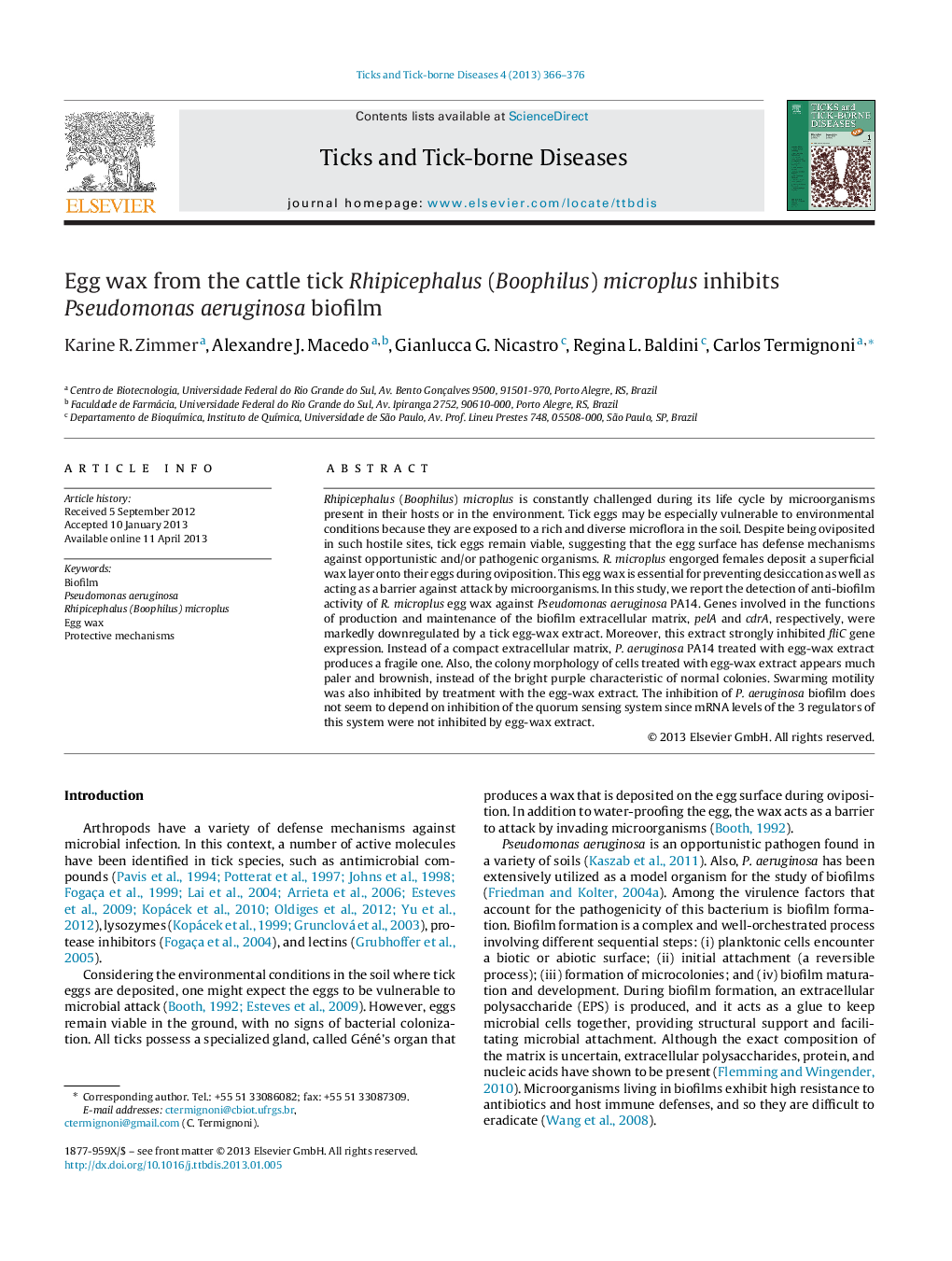| Article ID | Journal | Published Year | Pages | File Type |
|---|---|---|---|---|
| 2474206 | Ticks and Tick-borne Diseases | 2013 | 11 Pages |
Rhipicephalus (Boophilus) microplus is constantly challenged during its life cycle by microorganisms present in their hosts or in the environment. Tick eggs may be especially vulnerable to environmental conditions because they are exposed to a rich and diverse microflora in the soil. Despite being oviposited in such hostile sites, tick eggs remain viable, suggesting that the egg surface has defense mechanisms against opportunistic and/or pathogenic organisms. R. microplus engorged females deposit a superficial wax layer onto their eggs during oviposition. This egg wax is essential for preventing desiccation as well as acting as a barrier against attack by microorganisms. In this study, we report the detection of anti-biofilm activity of R. microplus egg wax against Pseudomonas aeruginosa PA14. Genes involved in the functions of production and maintenance of the biofilm extracellular matrix, pelA and cdrA, respectively, were markedly downregulated by a tick egg-wax extract. Moreover, this extract strongly inhibited fliC gene expression. Instead of a compact extracellular matrix, P. aeruginosa PA14 treated with egg-wax extract produces a fragile one. Also, the colony morphology of cells treated with egg-wax extract appears much paler and brownish, instead of the bright purple characteristic of normal colonies. Swarming motility was also inhibited by treatment with the egg-wax extract. The inhibition of P. aeruginosa biofilm does not seem to depend on inhibition of the quorum sensing system since mRNA levels of the 3 regulators of this system were not inhibited by egg-wax extract.
